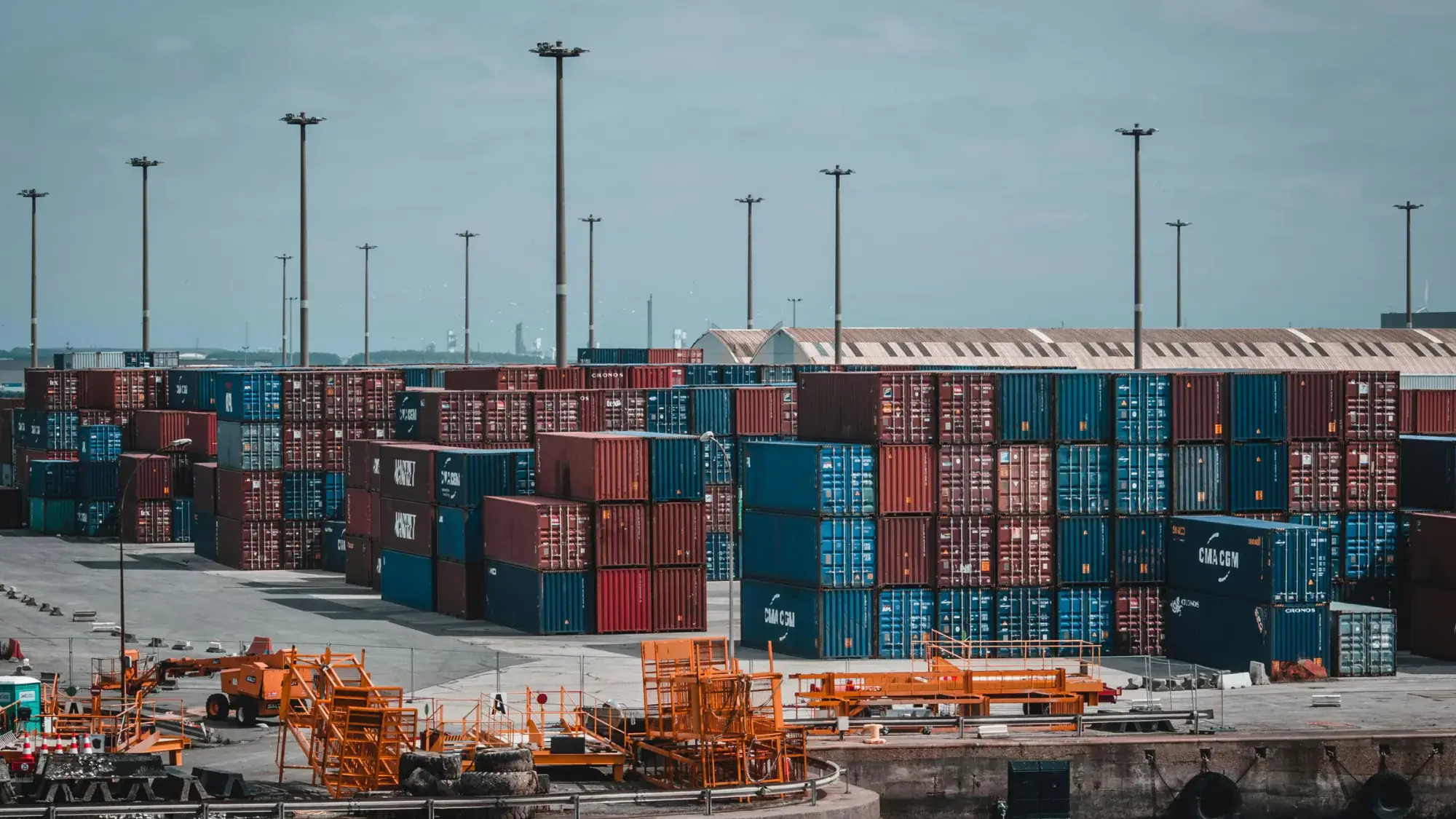
Don't leave money on the loading dock! Inefficient inbound freight can drain your profits, with common challenges like delays, surprise fees, and poor shipment visibility. But what if you could turn these challenges into opportunities?
This blog explores how optimized inbound freight boosts your bottom line by streamlining production, reducing costs, and improving customer satisfaction.
The Price of Inefficiencies
You're focused on driving revenue and growing your business, right? Of course! But what if we told you that inefficiencies in your inbound freight operations could be quietly undermining your profitability? It's time to take a closer look at the hidden costs that might be lurking in your supply chain. These often-overlooked expenses can significantly impact your bottom line, but the good news is, they're often solvable.
Delays and Production Disruptions
Imagine this: a key component for your manufacturing process is delayed in transit. Production grinds to a halt, workers stand idle, and deadlines whoosh past. Late deliveries lead to costly downtime, missed orders, and a scramble to expedite production, often requiring overtime pay and increased labor costs.
This isn't just a hypothetical scenario. In 2021, a major appliance manufacturer experienced significant delays in receiving imported components due to port congestion. This resulted in a production shortfall of over 10,000 units, leading to millions in lost revenue and a damaged reputation with retailers.
Inventory Holding Costs
Unpredictable inbound shipments can force you to carry excess inventory as a buffer. But warehousing those extra goods isn't free. The trade-off is that you'll incur expenses for storage space, handling, insurance, and even obsolescence if the inventory sits too long. On the flip side, inconsistent deliveries can also lead to stockouts, causing production delays and frustrated customers.
Studies show that inventory holding costs typically range from 20% to 30% of the inventory value annually. This means that for every $1 million in inventory, a company could be spending $200,000 to $300,000 just to keep it on hand!
Expediting Charges and Unexpected Fees
When shipments are delayed, the pressure mounts to make up for lost time. This often means resorting to expedited shipping services to get those crucial materials in, which, of course, comes with a hefty price tag. But the financial strain doesn't stop there. Those delays can also ripple outward, forcing you to expedite outbound shipments to meet customer commitments, adding even more to your costs.
And let's not forget about those unexpected fees that can further inflate your transportation expenses. Detention charges, incurred when a truck is kept waiting at the loading dock, and demurrage charges, for holding cargo at a port beyond the allotted time, can quickly eat into your profits.
These hidden costs can significantly impact your bottom line, making efficient inbound freight management a critical factor in achieving profitability.
The Profit-Boosting Power of Efficient Inbound Freight
While the costs of inefficient inbound freight can be significant, the benefits of optimizing your processes are even greater. Think of your inbound freight as the foundation of your entire operation. When materials arrive on time, production flows smoothly, and you can consistently meet customer demands.
This creates a ripple effect that strengthens your sales and marketing efforts, enhances your brand reputation, and ultimately drives profitability.
Improved Production Planning and Output
Reliable inbound freight is like a well-oiled machine for your production process. When you can confidently predict the arrival of materials, you gain the power of predictability. This allows for better production planning, optimized scheduling, and increased efficiency. No more scrambling for last-minute supplies or idling production lines due to missing components.
A prime example of this is the Just-in-Time (JIT) inventory management system. JIT relies heavily on efficient inbound logistics to ensure that materials arrive exactly when needed for production, minimizing storage costs and maximizing efficiency. Similarly, Lean Manufacturing principles rely on efficient inbound logistics to ensure that materials arrive precisely when needed. With a predictable flow of inbound goods, you can consistently meet production targets and increase overall output.
Reduced Operational Costs
Remember those hidden costs we discussed earlier? Efficient inbound freight helps you slash them! By optimizing your logistics, you can minimize inventory holding costs, eliminate those pricey expediting charges, and reduce overall transportation expenses.
A leading electronics manufacturer implemented a transportation management system to optimize their inbound freight. By consolidating shipments, negotiating better rates with carriers, and improving warehouse receiving processes, they achieved a 15% reduction in inbound freight costs within a year.
Enhanced Customer Satisfaction
Today, more than ever, customer satisfaction is paramount. Consistent, on-time delivery is a crucial driver of happy customers. When you can reliably fulfill orders and meet delivery promises, you build trust and loyalty.
Satisfied customers are more likely to become repeat buyers and recommend your business to others. Studies show that even a small increase in customer retention can lead to a significant boost in profits.
Strengthened Brand Reputation
Reliable delivery isn't just about meeting customer expectations; it's about building a strong brand reputation. When you consistently deliver on your promises, you establish your brand as dependable and trustworthy.
Positive online reviews and word-of-mouth referrals can do wonders for your brand image. In a world where consumers heavily rely on online reviews, a reputation for reliable delivery can be a powerful competitive advantage.
Key Strategies for Inbound Freight Optimization
Optimizing your inbound freight isn't just about wishing for the best; it requires a proactive and strategic approach. By implementing key strategies, you can transform your inbound logistics from a source of frustration into a well-oiled machine that drives efficiency and profitability. Let's explore these strategies:
3PL Partnerships
Building relationships with carriers is undoubtedly important for efficient inbound freight. However, managing a multitude of carrier relationships can become complex and time-consuming, especially as your business grows and your shipping needs evolve.
Instead of getting bogged down in the complexities of carrier management, consider a more strategic approach. Partnering with a third-party logistics provider (3PL) can streamline your operations and enhance your carrier collaboration.
A 3PL offers access to a vast network of reliable carriers, handles the intricacies of communication and coordination, and leverages its industry expertise to negotiate favorable rates and optimize your transportation strategies. This allows you to maintain strong carrier relationships without the added burden of direct management.
Visibility and Tracking
Real-time visibility is essential for efficient inbound freight management. Implement tracking systems that provide up-to-the-minute information on the location and status of your shipments. This allows you to proactively monitor deliveries, identify potential delays, and take corrective action to minimize disruptions.
Route Optimization and Consolidation
Optimize your transportation routes to reduce mileage, fuel consumption, and overall transportation costs. Leverage technology and data analysis to identify the most efficient routes for your shipments. Consider consolidating shipments whenever possible to maximize truck utilization and minimize transportation expenses.
Warehouse Efficiency
Your warehouse plays a critical role in inbound freight operations. Streamline your warehouse processes to ensure efficient receiving, processing, and put-away of incoming goods. Implement clear procedures, optimize warehouse layout, and leverage technology to improve efficiency and minimize handling time. A well-organized warehouse is key to preventing bottlenecks and ensuring a smooth flow of goods.
Inbound Freight: The Foundation for a Thriving Business
Don't let inefficient inbound logistics chip away at your hard-earned profits. Remember, your inbound freight operations are the bedrock of your business. A solid foundation in logistics translates to a smooth-running operation, predictable production, and, ultimately, a healthier bottom line.
By optimizing your inbound freight, you're not just improving efficiency; you're creating a ripple effect that strengthens your entire business. From reduced costs and increased output to enhanced customer satisfaction and a stronger brand reputation, the benefits are far-reaching.
Ready to build a more profitable and resilient business? Contact Customodal today. We'll help you optimize your inbound freight and unlock the full potential of your supply chain.





